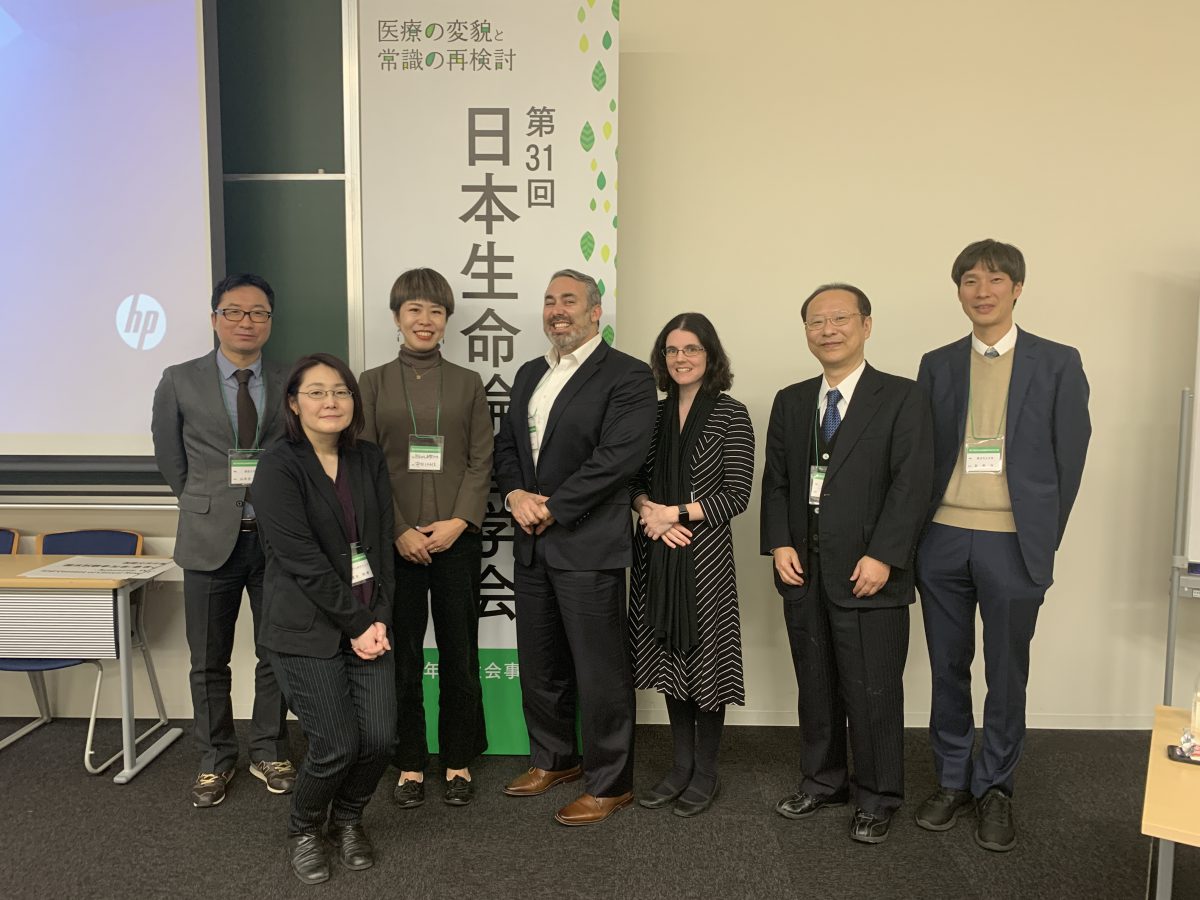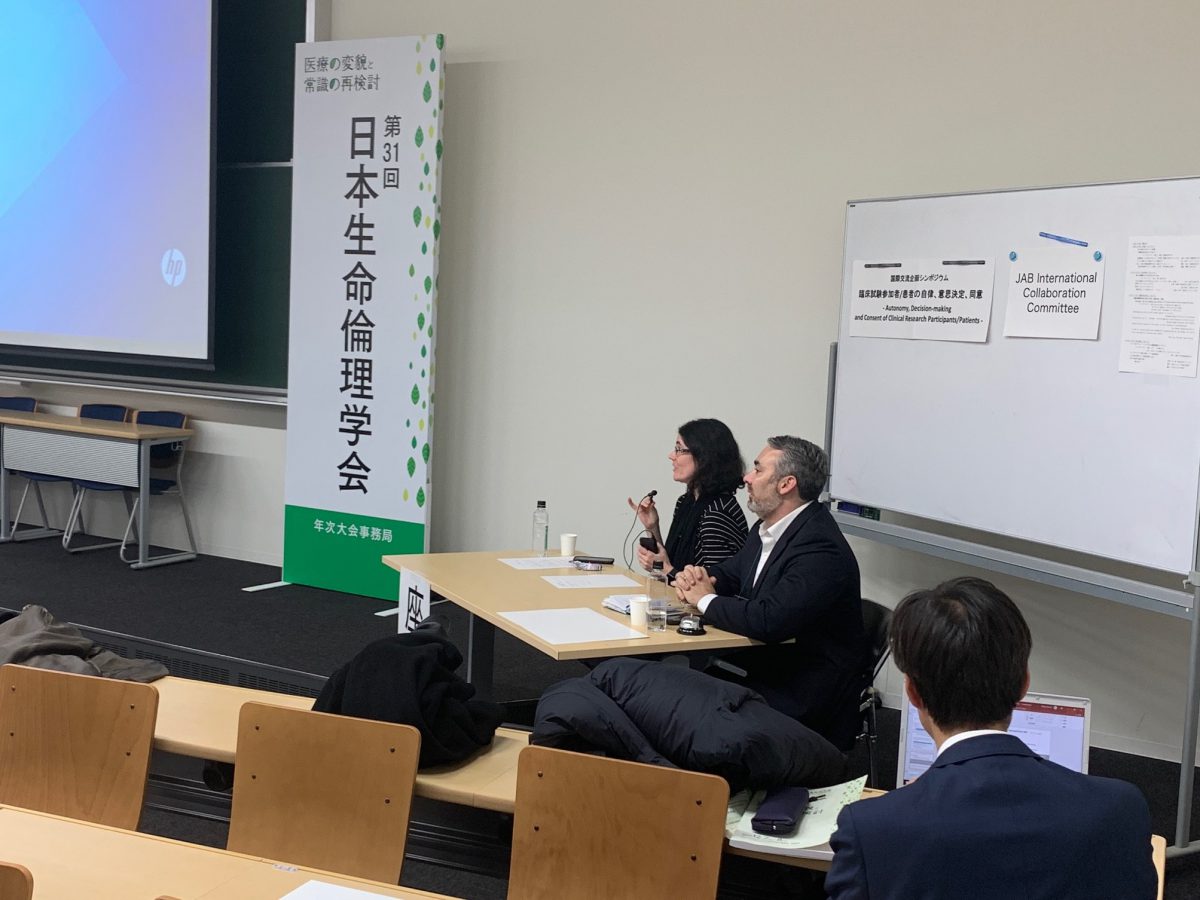Report
It was a great honour to address the attendees at the Japan Association of Bioethics annual conference in Sendai, December 2019. This opportunity to present research on emerging reproductive technologies and issues of informed consent led to useful discussions with attendees. I would like to sincerely thank the IAB for their support. As an early career researcher, the chance to present my research to an international audience is highly valuable for establishing my academic career in bioethics.
In terms of future research, attendance at the JAB conference inspired me to look further into issues of reproduction in the Japanese social context. I plan to conduct further research into the unique customs surrounding the use of assisted reproductive technologies (ARTs) in Japan, and how these may be contributing to population growth issues. I have already been interviewed by a Japanese bioethicist about the differences between the Australian and Japanese guidelines and social practices surrounding ARTs. The questions I received following my presentation on ectogenesis (artificial wombs) also highlighted potential future research projects focused on promoting autonomy in fertility medicine, considering fetal wellbeing in the context of novel reproductive technologies with unknown risk profiles, and where LGBTIAUQ+ rights may figure in debates on these topics.
I am currently teaching a new Applied Ethics unit at Deakin University that includes a week on ectogenesis. The conversations at JAB have provided material for hypothetical case studies and discussion questions. Furthermore, including more perspectives from the wider Asia-Pacific region in our medical ethics courses is a high priority in Australian medical education right now. Listening to the other speakers in my session yielded interesting questions to follow up in future teaching endeavours.
Professionally, I hope to maintain contact with other researchers I met at JAB with the potential for future research and teaching collaborations. The work I did for the JAB conference will also be beneficial for my presentation to the Asia-Pacific Bioethics Education Network annual meeting in Guangzhou, China in March 2020, which will be attended by several JAB members I met in Sendai. The JAB conference provided valuable networking opportunities with researchers from Japan and around the world.
Thank you again for the support to attend JAB and develop my research further in this area. I hope many fruitful collaborations result. The stated goal of the JAB-IAB fellowship is to enhance international exchange in the important field of bioethics, and my experience demonstrates that it succeeds in this goal. I wish all the best to future recipients of this fellowship.
Evie Kendal (Deakin University)

